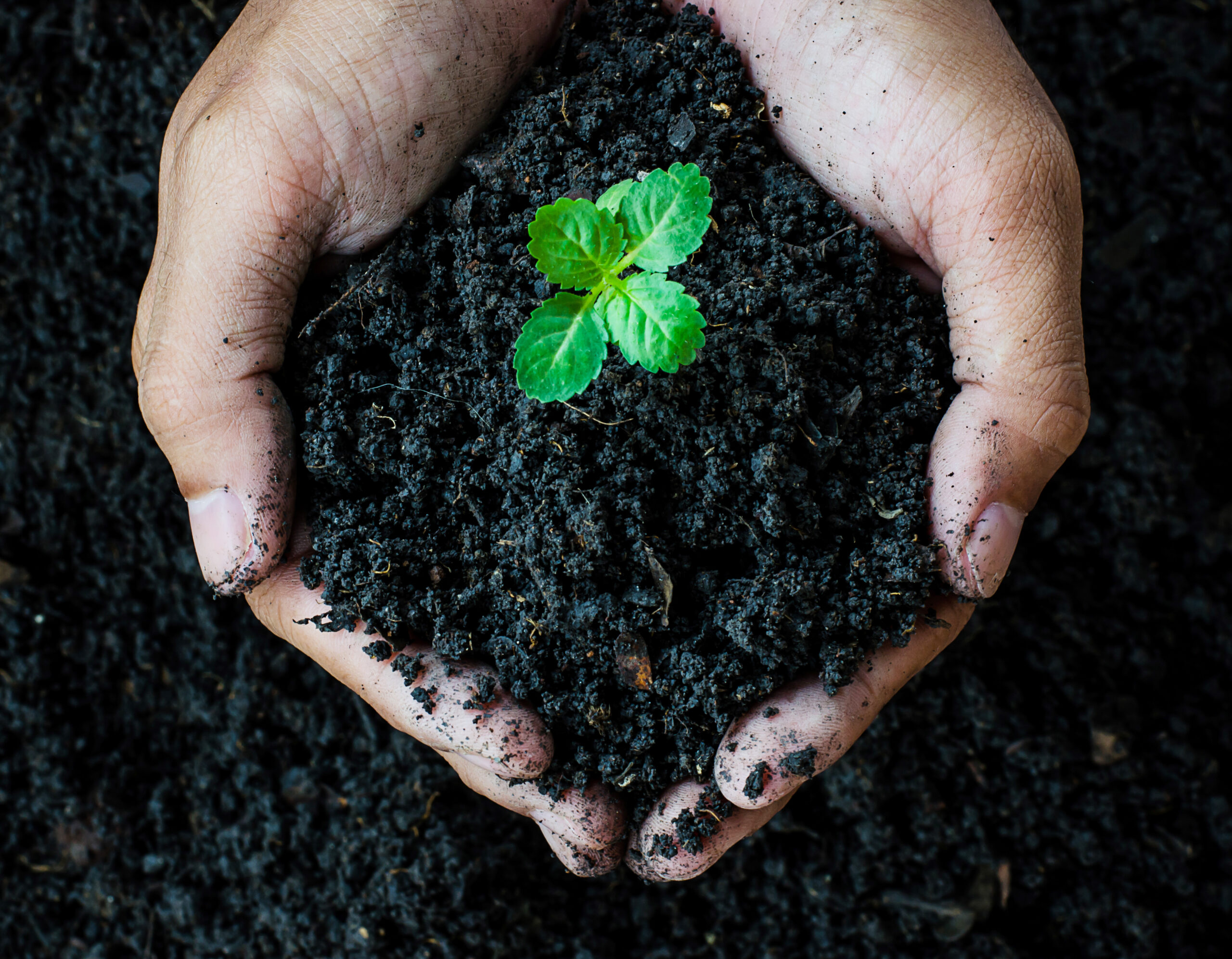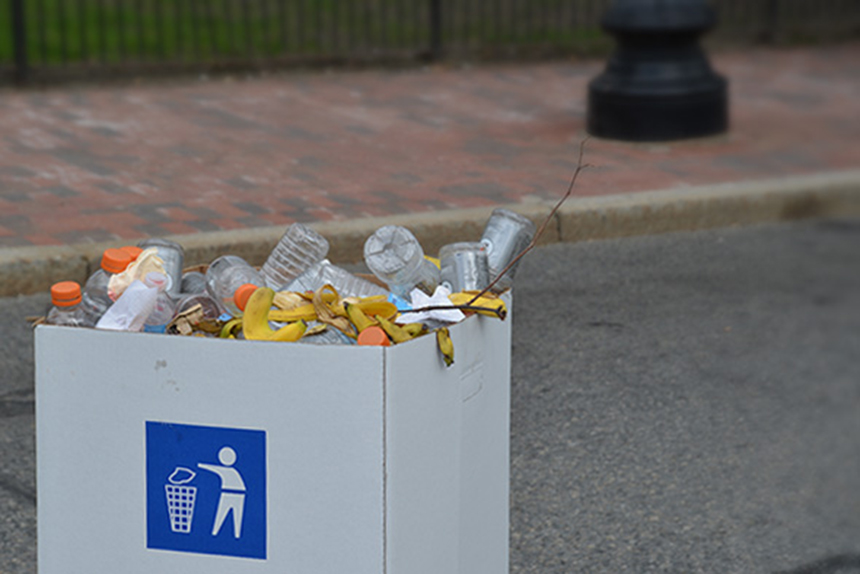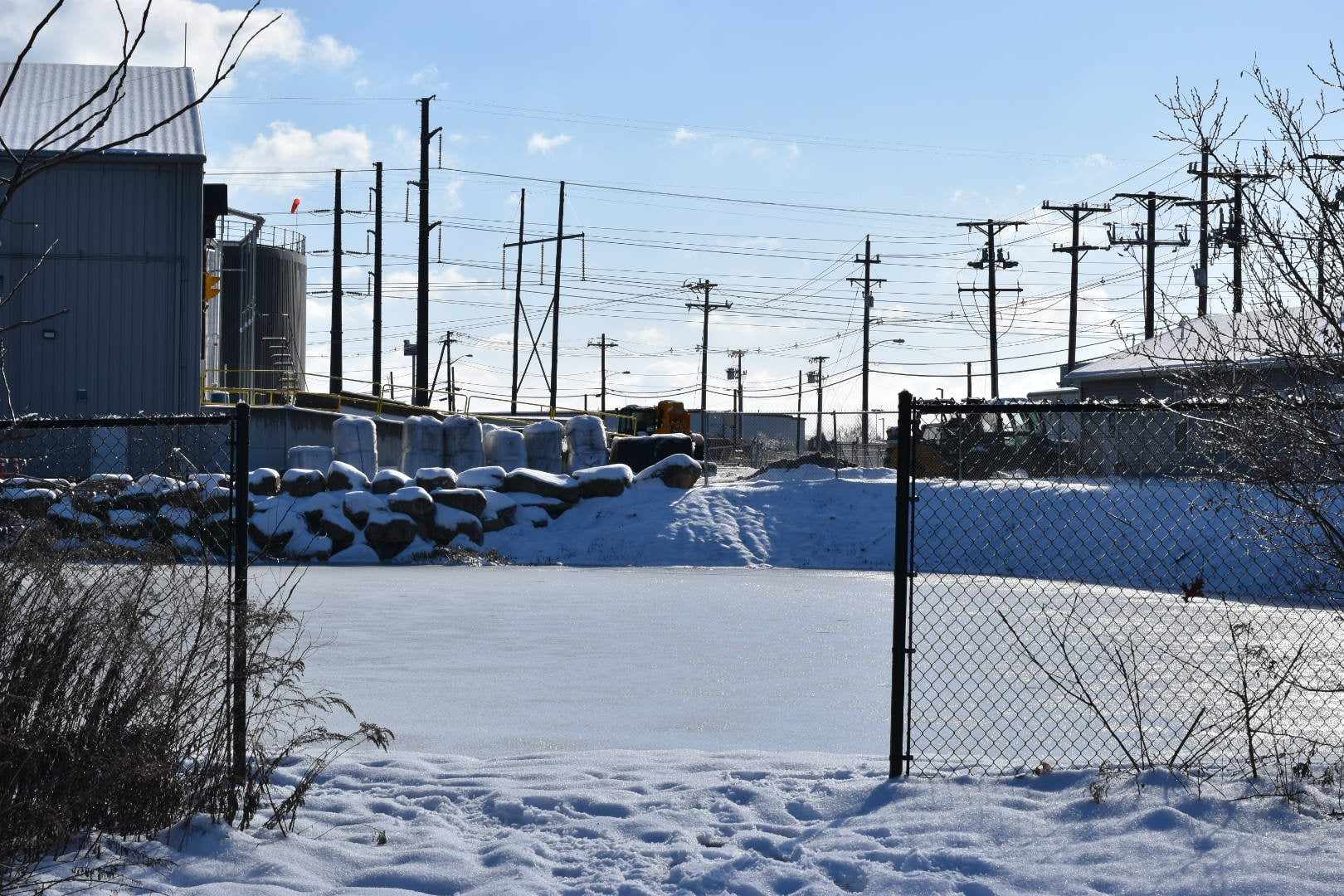Providence Pulls Up Its Bootstraps to Reduce Wasting Food Scrap
November 30, 2021
PROVIDENCE — Composting could be the key to prolonging the lifespan of the Central Landfill in Johnston. The 154-acre waste disposal site, which serves 97 percent of the state, is expected to reach its capacity by 2034, according to the Rhode Island Resource Recovery Corporation, the quasi-public agency that manages the landfill. Strategies for replacing the landfill are few and far between. No other municipality has offered to host a new landfill, and expanding the Johnston site would be expensive.
In the meantime, state officials are encouraging food-scrap diversion to extend the working life of the Central Landfill, as 32 percent of all municipal solid waste sent to Shun Pike is food waste, compostable paper products, and yard debris. Diverting these materials through composting could save 90,000 tons of waste annually from being buried in Rhode Island’s main landfill.
Rhode Island’s capital has spent the past several years encouraging its residents to divert organic waste. The city recently released a report assessing its waste diversion practices and recommending ways to strengthen its various initiatives. The report, titled Moving Towards Zero Waste, highlights three main ways for residents to divert food scrap: compost at home; getting it picked up directly by a hauler; or dropping it off at a community collection site.
“In general, I think most of us don’t have a good sense of what happens to our waste and how to manage it,” said Debbie Schimberg of Zero Waste Providence.
Diverting food scrap and other compostable materials would be beneficial to Providence’s bottom line. The Rhode Island Resource Recovery Corporation caps what each municipality can send to the Central Landfill every year, charging cities and towns extra fees if they go over.
Providence routinely exceeds the annual waste cap, costing taxpayers millions in overages. If residents had diverted half the amount of compostable material sent to the landfill last year, the city would have saved $759,000.
“The city spends a lot of money collecting trash and we pay by the ton,” said Leah Bamberger, Providence’s director of sustainability. “Food waste happens to be very heavy and therefore more expensive.”
Composting material is difficult in an urban environment, not everyone has easy access to a yard or space where they can dispose of food scrap. With the release of its recent composting assessment, Providence is highlighting the eight community collection sites across the city, in Washington Park, Federal Hill, the West End, and on the East Side.
In partnership with Zero Waste Providence, three new drop-off sites are being planned for a future opening at Mount Pleasant Library, Rising Sun Mills, and at the 425 West Fountain Street Plaza.
City government doesn’t operate these sites. They are run by an agreement between private property owners and compost hauling businesses.
For a monthly fee paid to the hauler, usually $10 or $11 a month, residents can drop off organic waste at these sites. Once a week a hauler will pick up the food scrap and deliver it to a composting facility or an anabolic digester.
“Some people are concerned they’re gonna be composting at all these sites and they are not, not that that’s a bad thing, but people get concerned about rats and oversight … the food waste doesn’t stick around, it doesn’t putrefy, it doesn’t compost, it’s there as a holding place until it gets picked up,” Schimberg said.
There are also other composting operations being run in the city, such as the Community Compost Depot at Frey Gardens on Radcliffe Avenue operated by Michael Bradlee. Providence resident Stewart Martin runs a business that teaches people how to compost at home.
Residents can also have a compost hauler pick up their food scrap at home weekly or biweekly for a fee.
“You get a bucket with a compostable liner, you fill it up with all your food scrap, bones, anything that grows goes,” said Igor Kharitonenkov, chief operating officer and co-founder of Bootstrap Compost.
Bootstrap Compost is one of a handful of businesses collecting residential food scrap in Greater Providence. The company is based in Massachusetts but expanded operations into Rhode Island a few years ago, opening a warehouse in Johnston to store and process organic waste. The business has 350 customers statewide, and last year diverted about 30 tons of food scrap.
City officials are encouraging a bottom-up approach to composting.
“We want to avoid, especially in the short term, putting another truck on the road going up and down every street in Providence collecting waste,” Bamberger said.
Besides saving diminishing space in the Central Landfill, composting also provides environmental benefits to urban agriculture and climate resilience.
“Compost has the ability to increase soil’s ability to sequester carbon,” Bamberger said. “It helps improve overall soil health and helps soil retain water and protect against drought.”




,Several of us started pushing local composting about 12 years ago, and finally there are enough of the pieces in place for this to take off. But if the city, state, and RIRRC had wanted to move faster, they could have done so.
I don’t understand why waste pick up companies are not already utilizing green bins for composting. Clean, simple brown paper and cardboard products that go into the blue recycle bins, vacuum stuff, as well as food scraps can all be composted.
They should accept some accountability for this. Yes, it would be more costly at first, and yes they would pass that on to us, the consumers, but perhaps as a perk, those that participate in the plan could be allowed to come and get the finished compost, like we have in Charlestown.
Many NYC residents and businesses have the option of no cost compost, why can’t RI?
The compost tea is then used for their parks, which do look great.
Who will lead this? DEM?